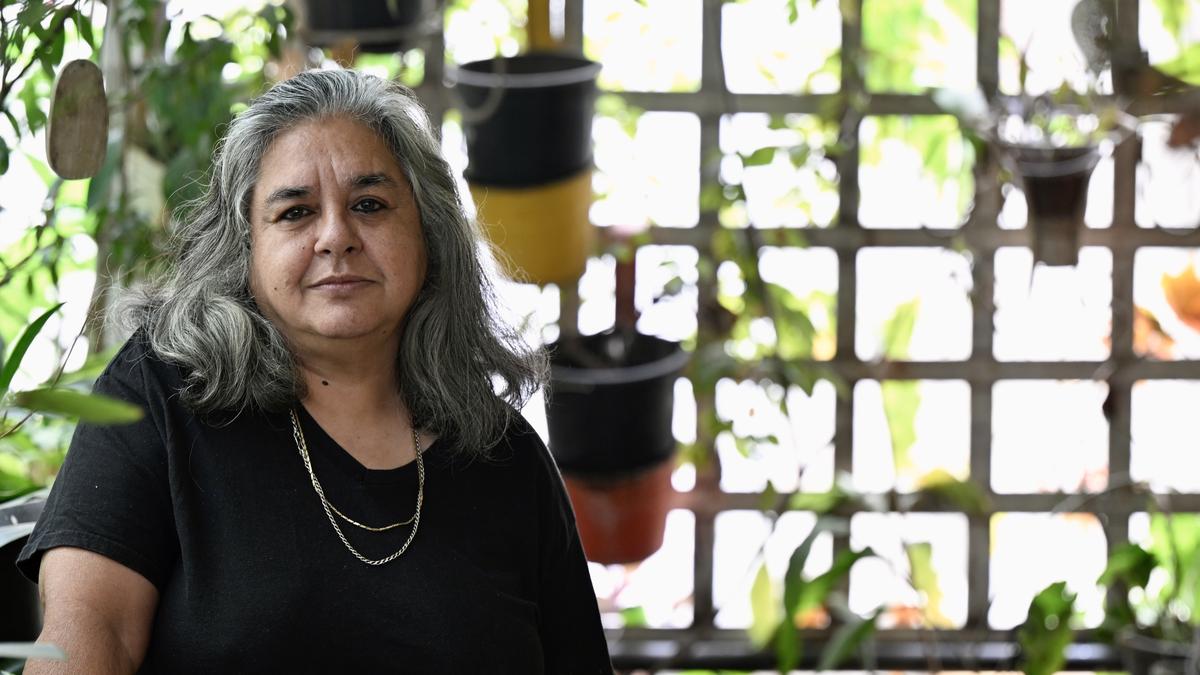
‘Why get hung up on morality?’ | Arshia Sattar on her new book Vasanta, a collection of Sanskrit plays in English
The Hindu
Translator Arshia Sattar discusses the art of translating classical literature, retaining authenticity, and the relevance of Sanskrit plays.
In the literary world, translation is god’s work. Translators bring back old stories for new readers, building bridges between languages known and unknown. In her latest, Vasanta: Stories from Sanskrit Plays (Juggernaut), translator and writer Arshia Sattar revisits Sanskrit plays by Kalidasa, Vishakhadatta, Mahendravarman, Harsha and Shudraka, among others, and transforms them into short stories, shifting gears not just between languages but also formats.
In this interview, she talks about her choice of stories, about retaining the essence of classical literature and the true ‘voice’ of its characters, and why they continue to be relevant. Edited excerpts:
I have to say that I truly love reading books, so I’d suggest that people read rather than watch or listen. Having said that, I think podcasts are a good way to access all kinds of books. The real question is not how you access information but the authenticity or factual basis of what you access. And the length of time you’re willing to spend with that source of information. So, choose your sources with discretion.
We simply cannot pick up a translation to read with the idea, ‘O, I wonder if this does justice to the original’. I think as translators, we must not ‘reimagine a story’, it’s our job to present the story as it is. Re-tellers can reimagine the story, that’s their job.
It is easier to translate from Sanskrit into other Indian languages because there is a shared vocabulary and a shared world-view but one can also become complacent and careless when one makes those translations, you know, slip into apparent cognates. I don’t think there’s a difference between translating new stories into English and translating classics, and that’s because I believe that all translations should be in a contemporary idiom. Classics should be translated anew for each generation: that’s the way to keep them interesting and accessible.
What’s missing is the beautiful poetry in all these plays, that’s a great loss. A lot of people have trouble reading plays, so I think the plays have gained a new audience with this transformation; that is some comfort. The whole process was fun because the plays are fun. And very unexpected in terms of how we think about the contents of classical literature. Elephants run amok, a tiger goes on a rampage, there are tantriks and yoginis who fly through the air and cases of mistaken identities and illicit love affairs and a people’s rebellion against a corrupt king. The challenging thing was to not make the plays so flat without dialogue that they became boring; to make sure that a character still rings true and is fully represented. And of course, with reduced dialogue, to make sure that you retain the ‘voice’ of each character.
Upinder’s introduction is fantastic, it’s full of the contextual information we need and it’s pitched just right to the general reader. I love the fact that the stories are urban, again, it goes against the grain of what we imagine for the classical period — people living in ashrams and surrounded by nature and discussing the meaning of life. Real cities, not just urban settlements, were very much a part of this so-called ‘golden age’ when so much was happening in arts and literature, mathematics, astronomy, political thought and medicine. But we must remember that apart from The Little Clay Cart (Shudraka), all these plays are located among the upper castes, ruling elites and rich people. So, the plays don’t give us a full picture of what life might have been like. What they do tell us is that people were just as we are now — funny, jealous, greedy, kind, generous and very interested in both artha (money) and kama (desire).













